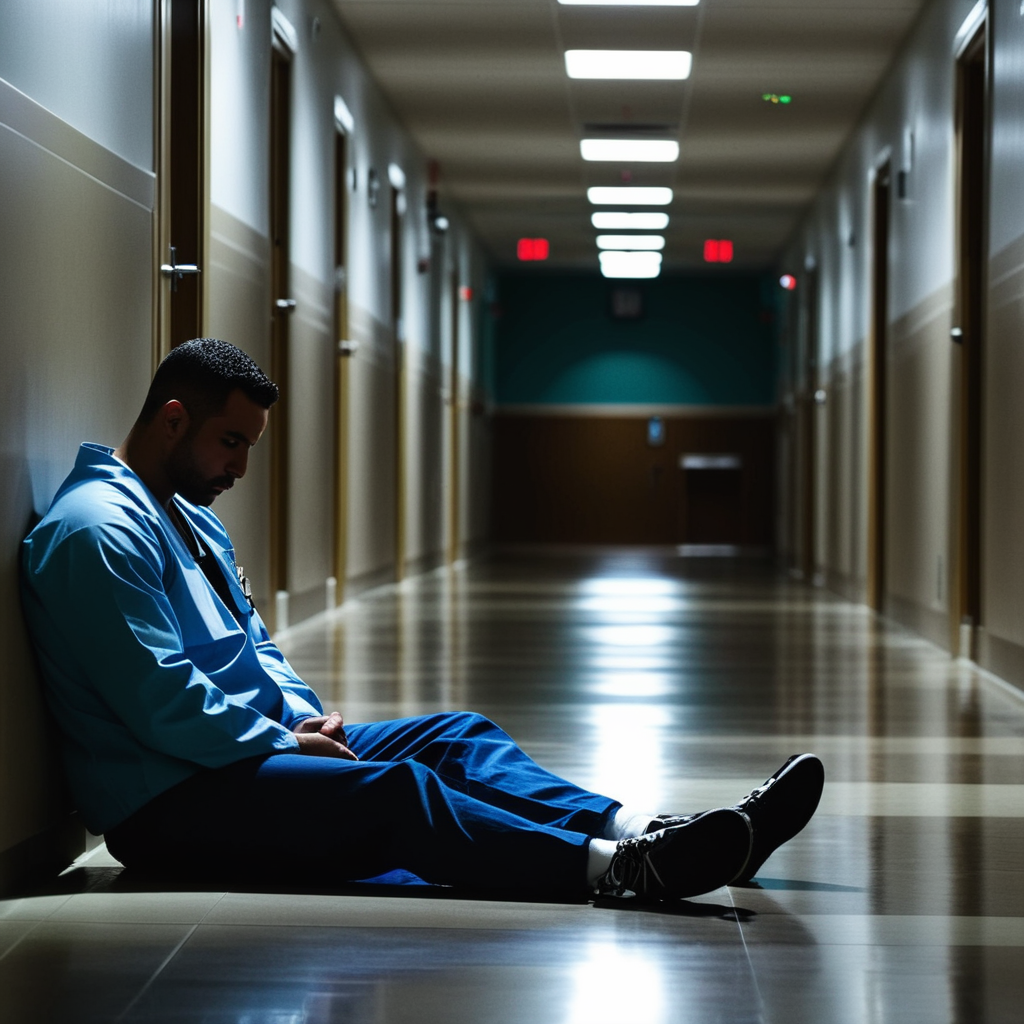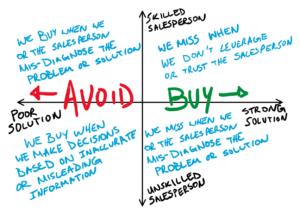Facing Trauma and PTSD

Facing Trauma and PTSD
The story of my daughter’s premature birth and subsequent disabilities is the hardest thing I’ll ever write about, but it’s a story I’m compelled to share. I’ve felt the need to get this out for a number of reasons.
- First, there are important lessons in here for anyone willing to listen.
- It’s been interestingly therapeutic to write about it in this way - and after many revisions, it’s helped me wrap my head around everything in new ways.
- It also will share a glimpse into not just the future of my family but of my business – my work in this particular area is just beginning.
- I’m having more public conversations and this is a topic that I can’t really dance around, so having a background story to point to is helpful.
- And one of the core beliefs behind RLS Consulting is: “Knowledge should be shared to help others succeed” – so, in that sentiment, I hope my knowledge and experience around this can benefit others.
I want to be really clear that I’m not doing this for attention or sympathy. As you’ll learn through this very personal post, my outlook on these things is probably different than most.
There are plenty of others out there in more difficult situations, dealing with things much heavier than what I’ve ever faced. We all have a different perspective of what a personal low point (pain, loss, trauma, etc) looks and feels like. These feelings are all relative to our own perception. More on that point later…
And there is a happy ending here for me and my family, happiness may not look like what you’d expect – but I’ve learned that is often the case.
I do intend to leverage my platform to build awareness to topics like this and others. I have a lot to say about being a parent of a special needs child, overcoming trauma, the healthcare system, and more. I hope you follow along and that I can make a positive impact for you through these topics I’ll be writing and talking about.
I also hope this post helps encourage others out there to talk about the things that they’re struggling with on their own.
The more I share my own story, the more I find others out there that have similar experiences that have helped me wrap my head around my own life. And, sometimes it’s created a new friend or provided me with information I would have otherwise never had.
A Quiet Tuesday in November
2018 was a very busy and exciting year. I had just gotten started with Rigid Bits and we were beginning to build some momentum in our first year together as a company. And, at home, my family was growing with my wife, Lindsay, and I expecting our first child (we now have two as of this writing).
I was always told that ‘babies bring prosperity’ and was beginning to see how true that was. My motivation and excitement were at a high point, and I was feeling like everything was falling right into place in all parts of my life.
We just had our baby shower the weekend prior and my world was picture perfect. Lindsay and our baby were healthy, and everything was going great – until it wasn’t.
It was late afternoon and, as I wrapped up my work for the day, I moved into the nursery to do some painting. Lindsay had called to let me know she was still stuck at a doctor visit and we were figuring out our dinner plans. She was at 31 weeks, so all of this was pretty normal activity at this stage. Leading into this visit, she had nothing but great feedback from her doctor.
However, this particular day, the baby wasn’t quite as active. Lindsay was counting kicks and the inactivity stood out enough for her to drop in for a quick check in.
They did some ultrasounds and other tests that all seemed fine, but her doctor wasn’t satisfied. Well after all of this, she shared that it was her gut that told her to keep Lindsay under her view. She said she’d gotten to know my wife and knew that something was up if she was worried. She wholeheartedly trusted Lindsay’s intuition.
Back home, I’d had an idea of what was going on but not the gravity of it. When I got the next call a little later that evening, it was clear something was very wrong.
Lindsay was being admitted for deeper testing and they suggested I get there… immediately.
The next 2 hours were both a blur and seemed never ending. It felt like a week’s worth of experiences crammed into 2 minutes.
A Not-So-Quiet Night
As I arrived at the hospital, before I could even wrap my head around what was happening, they were already getting ready for surgery. They still weren’t quite sure what was going on, but a couple of things were clear to the medical team that had the doctors very worried.
My daughter’s heart rate was irregular, it’d drop down and be very faint, then come back. They also noticed a mass in her brain that they thought may be related to the issue.
Because she was 2 months early, she was very small and the only way she could be operated on safely was to get her out and perform an emergency C-Section. So, to the ‘OR’ we went.
I’ve found that many medical professionals, at least that I’ve worked with over these last several years, tend to be very careful about their assumptions and expectations they set. On this day, they were preparing me for the worst possible outcomes.
I was told how small she may be, that she may not cry, that there was much we wouldn’t know until we got her out and they could really get to work.
That’s one of the things I was glad they were wrong about. She was tiny, small enough to fit in your hands, but nearly twice the size they told me to prepare for. And her cry was the most beautiful sound I could have heard at that moment, it gave us hope.
So, What Happened?
We still don’t know exactly what happened and can only speculate. The best way I’ve had it put, much later in the future, was that they look at it as an “interrupted stillbirth”: meaning they saved her life. Had they sent Lindsay home and not trusted her ‘Mother’s Intuition’, this would have been a miscarriage story instead.
They think the umbilical cord could have been wrapped around her neck or been pinched, maybe the brain didn’t fully form. Either way, there was a burst of pressure that caused her brain to bleed (the blood was the mass they could see in the brain).
The results were a level 3 and level 4 brain bleed in her right and left hemispheres. (That’s out of 4, so it was basically as bad as it can get.) When the blood gets into the gray, undeveloped brain tissue, it damages the tissue, and it effectively dies. This causes damage to the brain, sometimes blocking its ability to communicate with the body.
The other negative effect is that the blood isn’t ever meant to be in the brain like that. Your brain has Cerebral Spinal Fluid (CSF) that moves through the brain and flows down your spine, but the blood particles were blocking its ability to do that. One doctor explained it to be like coffee grounds getting caught in a filter. This can lead to problems since CSF is regularly produced and pressure can build in the brain very quickly if it can’t flow naturally.
Basically, the brain damage and resulting impacts lead to a diagnosis of Cerebral Palsy and she eventually needed a Ventricular Shunt Device to help regulate the pressure.
The Rest of the Story
There’s so much more that happened over this journey, and that continues to happen because of the results of that one day.
My daughter ended up spending 77 days in the Neonatal Intensive Care Unit (NICU). There were weeks where we couldn’t hold her. I spent those months working from the hospital and taking shifts with Lindsay, so we always had someone by her side.
I can’t express how difficult that time was. Our house never felt emptier. And there was an immense amount of guilt that either of us would feel if we were anywhere aside from the hospital. It all just felt like a battle. I’ve immediately reverted back to that feeling, this battle-mode, anytime she’s been re-admitted for something (which will likely be a recurring part of her story – I’ve come to learn that it’s just the nature of her situation).
She’s had more brain surgeries than I can count at this point (easily around 15 or more, 7-8 in the last year alone), several stomach surgeries, and other brain-related challenges.
Today, she is immobile and non-verbal – however she will say some words and has some things she can do physically. Her biggest limitation is around the ability to control her head and neck, it keeps her from being able to sit without support.
I still see bursts of developmental progress and am hopeful she will be able to overcome some of this – but it’s a reality we’ve had to come to terms with.
I’ll tell you this though, the kid refuses to give up. Every movement requires focus for her to control her muscles.
She inspires me greatly. I’ve never seen anyone tougher, more determined, or that works harder.
In the end, what’s most important is that she’s happy. And while there are still struggles, seeing that big beautiful smile on my little girl always lights me up. Little victories can give us the greatest joy, and we do our best to cherish every moment.
We eventually faced our greatest fears and made a very difficult decision to try having another child. Our son was born happy and healthy just over a year ago. Looking back, it seems like a crazy idea to even attempt this again, but doing so has actually been quite healing for both of us.
Lessons I’ve Learned
I’m still figuring this out, and still have a mountain of work to do here – but the whole point of revisiting this with you is to help share the things I’ve learned. Whether it be for you personally, or it be to help you be there for someone else going through it – whatever ‘it’ may be.
Today, here’s what I’ve learned so far:
You need to talk about these things. You don’t have to do it publicly like this – but find someone that is willing to listen. You need to let it out. If you don’t have someone you think will understand, please reach out to me. I’d be happy to listen and help however I can.
You’d survive this too. I hear from parents all the time that they can’t imagine getting through the things that we’ve experienced or that they wouldn’t be able to do the things we’ve done. But you can, and you would be surprised what you can find within yourself in times of need. It’s like the idea that you can only be brave in the face of fear – bravery is not the same as being fearless, and you must first find yourself in a situation where you have to face a fear to find your bravery. It’s not easy and you may need help, but I truly believe it’s within you.
Grief doesn’t just happen with death. I needed to learn to grieve for the life I had expected to have that was no longer going to be a reality. However, I realized that there are degrees of this that we do all the time. As parents, it’s very common to dream about who we think our child will become – but we are better off focusing on the present and letting go of these ideas we impose on them. Acknowledging this grief and coming to terms with being present and practicing mindfulness helps me here – it doesn’t make it go away though, it’ll always be there. (I recently heard this quote in a Christmas movie that comes to mind: “Grief is the price we pay for love, and worth it, a million times over.”)
Beware of the silver lining. I’ve gotten really good at finding a silver lining… too good, to a point where it’s been my mechanism for avoiding pain. I’ve learned that it’s important to find the positive side but to also be real with myself about what I’m dealing with.
Cut out the social media when times are tough. For the first couple weeks in the NICU, I didn’t know what to do with myself and would endlessly scroll through Facebook posts. It was the worst thing I could have been doing. Between the barrage of political posts, I’d see people paint the picture of a perfect life or those that were victims of everything imaginable – all of it was like picking at a wound. Killing time was helping me, but that’s not the way to go about it.
A low is a low, it’s all relative to your situation. I’ve spent a lot of time in hospitals over the last few years and met other parents going through similar situations. I remember a woman in the elevator who just got crushing news about their son’s cancer treatment failing. Her world was crashing down around her.
When I look at others, I can’t help but think about what it’s like to be in their shoes. If you’re scared for your kid’s life – whether it’s cancer, or you just imagined the worst and everything turned out fine, whatever it looks like – your world still feels like it’s crashing down around you. It’s all relative.
Your worst day may not look or sound like mine, but it still was your worst – so I’ve learned a low is a low, it’s just perspective and we can’t look at someone else’s life and really compare. It doesn’t work that way. It’s one of the reasons why I don’t want or expect sympathy with this story. We all have hard days that hit us. That’s not a contest anyone should ever want to win.
It takes work, and it’s never done. I’ve had to learn how to deal with PTSD and daily confront reminders that can trigger me. It takes constant effort and work that you need to find time for, otherwise these things build until they make you take the time to deal with it. There’s no free pass here.
Focus on what you can control, let go of the rest. This is hard when everything is out of your control, but there’s not much you can do about it. In our case, all we could do was be there and present, so much was out of our hands. When you find yourself in situations where there is no control, you can still focus on your effort, attitude, and how you treat others around you.
It’s a slippery slope, but I found escaping in my work was quite helpful. I’ve found that I can be very successful when I turn negative situations into motivation. I’ve talked to others that have similarly noticed their difficult times have led to times of success.
Educate yourself about your situation. Lindsay and I would always joke that there must be a mistake, we had an expert-level baby and were novice-level parents at best.
We had to become medical students by necessity. Lindsay and I had to make some very big decisions about things that we just learned about. There were times where we were pressured to move quickly. This all became really important for us over the years because we were the only connecting piece between what several different specialists were doing – so we were the only ones who truly knew our daughter’s situation and all of the moving pieces. We had to get used to asking about alternatives, challenging doctors, and trusting our own instincts.
Never give up! Be determined in everything you do. I’ve seen this little five year old fight for her life more than once. She’s stronger and braver than I’ll ever be, she keeps us going.
So that’s what you do, just push forward. I suppose it’s a choice:
Do you see yourself as a victim or a survivor?
What’s Next?
Please take what you can from this and keep it in mind next time you, or someone close to you could use the advice above.
As far as for me and RLS Consulting, there is much more work I hope to accomplish here.
I have dreams to create non-profits to help parents in these situations, I see technology and resources that can be improved, and I just want to help bring awareness in general to challenges out there people should know about as well as good people out there doing things to help.
Growing a new business takes some time so this is all part of a longer 5-10 year plan. So, for now, I’ll continue to write, share ideas, and bring other people into the conversation.
Thank you for reading and following along!
-Ryan
Share

Ryan Smith
Ryan's experience across cybersecurity, sales, insurance, technology, education, and mathematics have helped him become a business-oriented problem solver that can simplify complex topics.
His eclectic and diverse background is now able to be leveraged by businesses that are interested in outside perspectives to help them overcome challenges.
Popular Posts

RLS Consulting Is (Re)Opening for Business!

Cybersecurity Begins at the Individual

The Buyer’s Challenge
Newsletter


